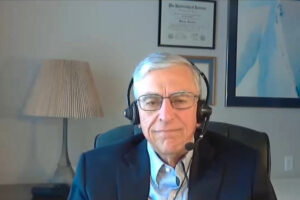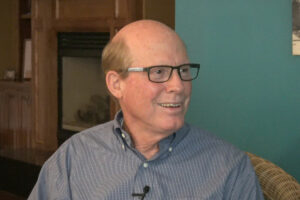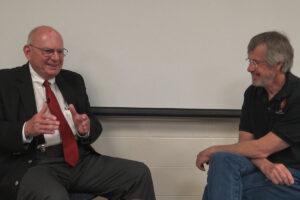Interview of John Peck, February 5, 2021
Interviewed by Rex Buchanan
In this 2021 interview, John Peck, Emeritus professor of Law at the University of Kansas, recalls the early days of his career entering into the field of water law. His interview provides insight into the important elements of water law in Kansas and how they developed. Peck reflects on the effectiveness of Kansas laws and regulations governing water use. Peck also identifies continuing questions about existing water law and related practices. From his role as an active observer of the legal and regulatory culture that has developed around water in Kansas, Peck presents a unique perspective. Show More Show Less




